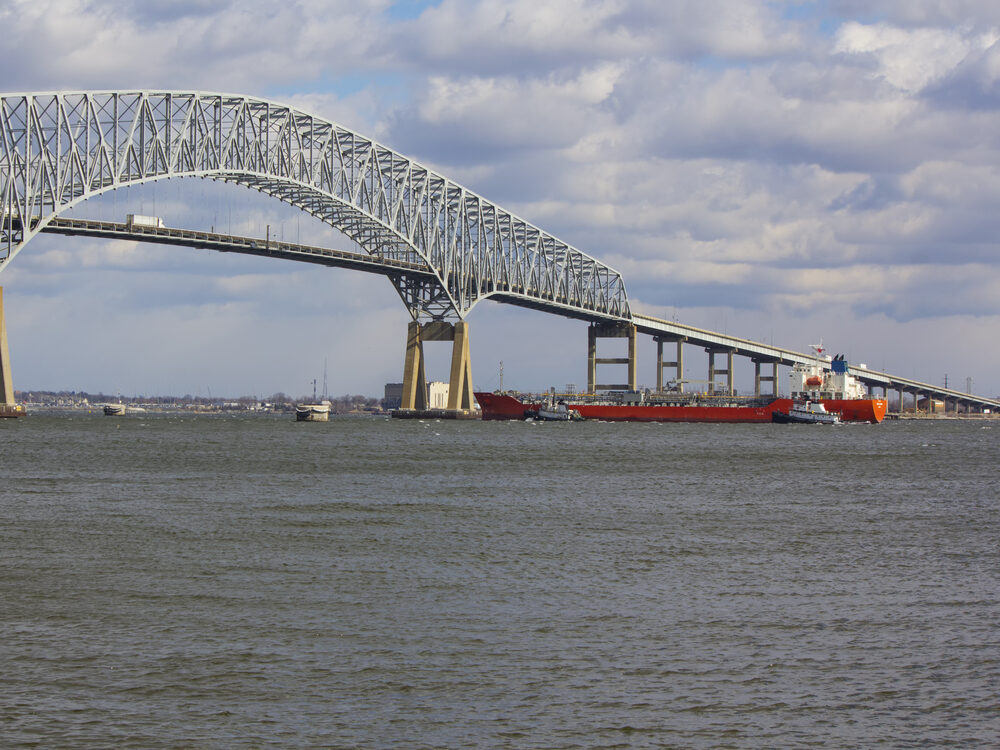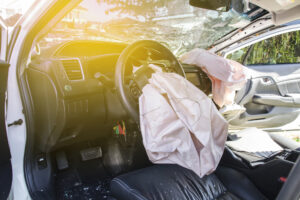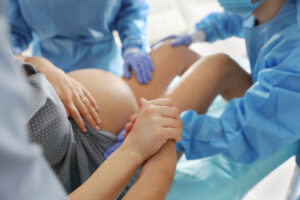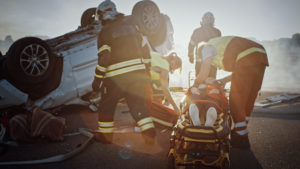
A tragedy is unfolding in Baltimore following the collapse of the Francis Scott Key Bridge earlier this week. A 948-foot-long cargo vessel bound for Sri Lanka lost power and collided with the bridge, causing it to crumble around 1:30 a.m. on March 26. The ship’s captain issued an urgent mayday call before the collision, which allowed first responders time to stop traffic and save countless lives. Unfortunately, six construction workers who were working on the bridge are presumed dead following the collapse. The U.S. Coast Guard called off search-and-rescue efforts for the missing workers because of the unlikeliness of surviving the fall into deep waters.
Governor Wes Moore has declared a state of emergency, and President Joe Biden said that the federal government should pay for the reconstruction of the expansive bridge. The Port of Baltimore is closed indefinitely, which will significantly impact the supply chain. It’ll likely take years to rebuild the bridge, and the local economy will be affected. According to a report from The New York Times, an inspection of the ship previously found that the vessel had a deficiency related to “propulsion and auxiliary machinery.”
Federal agencies will investigate the bridge collapse, and more information will presumably emerge in the coming weeks and months. Had the collision happened while roads were busy or the ship captain not issued an urgent mayday call, the number of people who suffered severe injuries or death would have been significantly higher.
Right now we are praying for the safety of all those who were involved in this accident. We will continue to follow this story. The financial damage to the port, the economy, and the people who rely on supporting that port will be extensive.
The bridge collapse is one type of accident that can lead to catastrophic injuries. Bridge collapses are exceedingly rare — according to the Associated Press, only 18 U.S. bridges collapsed from 1960 to 2015 out of more than 600,000 bridges nationwide. However, other types of accidents are much more common and commonly result in catastrophic injuries.
What Is A Catastrophic Injury?
A catastrophic injury is a severe injury that causes long-lasting damage. These injuries often result in partial or total disability and completely alter someone’s quality of life. An injury might meet the criteria for being defined as catastrophic if it causes permanent health complications, leaves someone disfigured or seriously scarred, or makes it impossible for the sufferer to return to work. This isn’t an exhaustive list, but some of the most common catastrophic injuries include:
- Traumatic brain injuries
- Paralysis
- Limb loss
- Burns
- Spinal cord injuries
- Organ damage
- Bone fractures
Types of Catastrophic Accidents
Motor Vehicle Accidents
There are over six million car crashes in the U.S. every year. Of these collisions, a significant portion will result in catastrophic injuries for the involved drivers, passengers, and pedestrians. The high-speed impact from a motor vehicle accident can kill — and even when crashes aren’t fatal, they can cause catastrophic injuries in a matter of seconds.
Trucking Accidents
Trucking accidents are often even more serious than motor vehicle accidents between two passenger vehicles. The average semi-truck is 20 to 30 times heavier than a passenger vehicle, so it can be devastating when the two collide. Additionally, trucking accidents carry the potential for underride crashes, which occur when a car slides underneath a large truck.
Boating Accidents
Warmer months are quickly approaching, and many will spend their days on the water. While recreational boating is a fun activity, it can quickly become dangerous. Most boating accidents involve alcohol use, and operators may not realize that boating drunk is just as dangerous as getting behind the wheel impaired. Boating accidents can cause traumatic injuries, including near-drownings.
Falls from High Heights
Falling from high heights commonly leads to catastrophic injuries like broken bones, spinal cord injuries, and more. Falls happen for various reasons — some professions are especially susceptible to falling, like construction, warehousing, manufacturing, and oil and gas work.
Fires
Fires can cause extensive property damage and serious injuries, whether intentional or accidental. Fires frequently happen after a motor vehicle accident, at home, or at work. Burns from a fire can cause fatal injuries. Even when burn patients survive, they may need extensive surgeries to help them heal.
The Aftermath of a Catastrophic Injury
The aftermath of a catastrophic injury can be overwhelming. The expenses may feel insurmountable — costs like medical bills, physical therapy, and the injured person’s lost wages from being unable to work. If someone else’s negligence causes your injury, you may be eligible for compensation to offset the financial burden. You should consult a personal injury attorney to determine whether you have grounds to file a lawsuit. Catastrophic injuries can be devastating, but you don’t have to navigate the recovery process alone.
Catastrophic injuries have lifelong implications, and you’ll need help to ensure that you receive fair compensation for the expenses you incur. Sometimes, an injured party can never work again — and any settlement amount should reflect this profound financial loss. The attorneys at Paulson & Nace specialize in catastrophic injury cases, and we represent clients in Washington, D.C., Maryland, and West Virginia. We can help recover damages for medical expenses, pain and suffering, lost wages, and more. Schedule a free consultation by calling us at 202-463-1999 or contacting us online.
@thumbnail.jpg)
Both an Emory School of Law graduate and MBA graduate of Goizueta Business School at Emory, Chris Nace focuses his practice on areas of medical malpractice, drug and product liability, motor vehicle accidents, wrongful death, employment discrimination and other negligence and personal injury matters.














Comments for this article are closed.